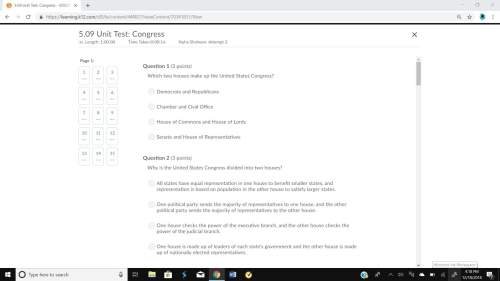
Social Studies, 21.04.2020 01:29 craycrayjayjay123
Religious Discrimination.
Mary, a Roman Catholic, worked for Dillard Department Stores. Dillard considered Mary a productive employee. The store gave its managers the discretion to grant unpaid leave to employees, but prohibited vacations or leave during the holiday season (October through December). Mary felt that she had a "calling" to go on a "pilgrimage" in October to Yugoslavia, where some persons claimed to have had visions of the Virgin Mary. The Catholic Church had not designated the location as an official pilgrimage site and tours were available at other times. The store managers denied Mary’s request for leave, but she had a nonrefundable ticket and left anyway. Mary was fired. Mary searched for a new job and did not attain the level of her Dillard salary for four years. She filed a suit in a federal court against Dillard, alleging religious discrimination in violation of Title VII.
Can Mary establish a prima facie case of religious discrimination? Explain and provide reasons to support your position

Answers: 3


Another question on Social Studies

Social Studies, 21.06.2019 22:00
Give reason why some traditional caribbean customs are presently changing
Answers: 3

Social Studies, 22.06.2019 06:00
Which bronfenbrenner level examines the developmental influences of homes, caregivers, friends, and teachers?
Answers: 1

Social Studies, 22.06.2019 21:50
Cooperation among oligopolies runs counter to the public interest because it leads to underproduction and high prices. in an effort to bring resource allocation closer to the social optimum, public officials attempt to force oligopolies to compete instead of cooperating. consider the following scenario: suppose that the presidents of two auto manufacturing companies exchange text messages in which they discuss jointly raising prices on their new lines of hybrid suvs. this illegal communication would violate which of the following laws? the sherman antitrust act of 1890 the robinson–patman act of 1936 the celler–kefauver act of 1950 the clayton act of 1914
Answers: 2

Social Studies, 23.06.2019 03:10
How is citizenship achieved in the united states? check all that apply. citizenship by birth citizenship by residency citizenship by naturalization citizenship by employment citizenship by immigration
Answers: 3
You know the right answer?
Religious Discrimination.
Mary, a Roman Catholic, worked for Dillard Department Stores....
Mary, a Roman Catholic, worked for Dillard Department Stores....
Questions


Mathematics, 21.01.2021 21:30



Chemistry, 21.01.2021 21:30

Mathematics, 21.01.2021 21:30

Mathematics, 21.01.2021 21:30


Mathematics, 21.01.2021 21:30







Mathematics, 21.01.2021 21:30

Mathematics, 21.01.2021 21:30


Mathematics, 21.01.2021 21:30

Advanced Placement (AP), 21.01.2021 21:30




